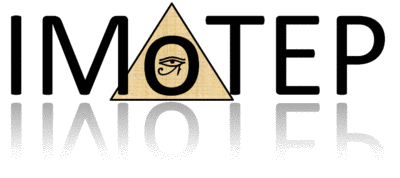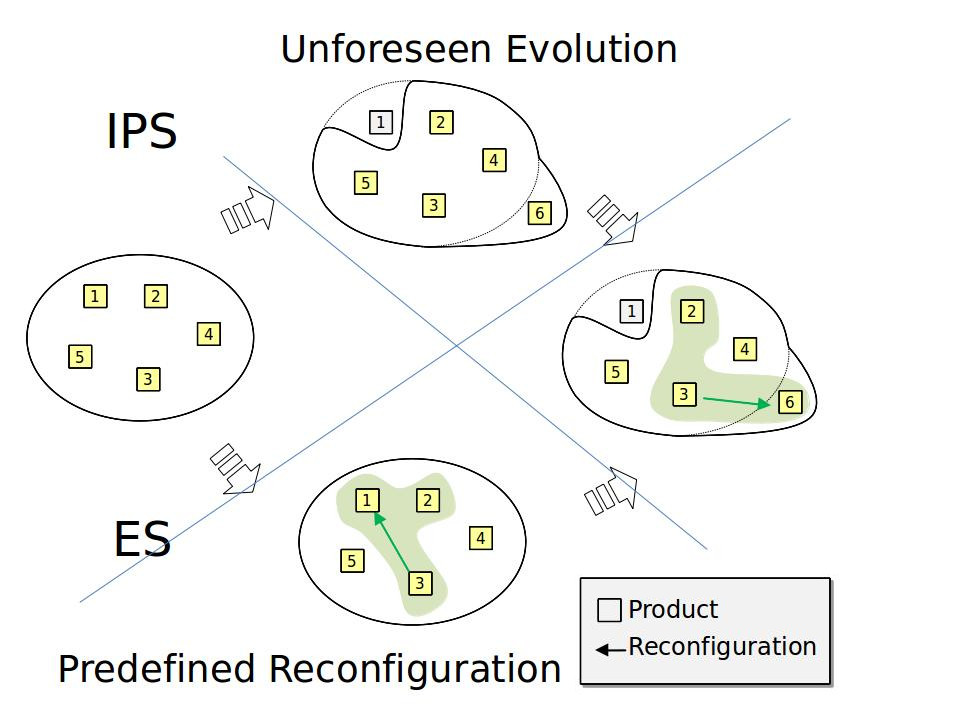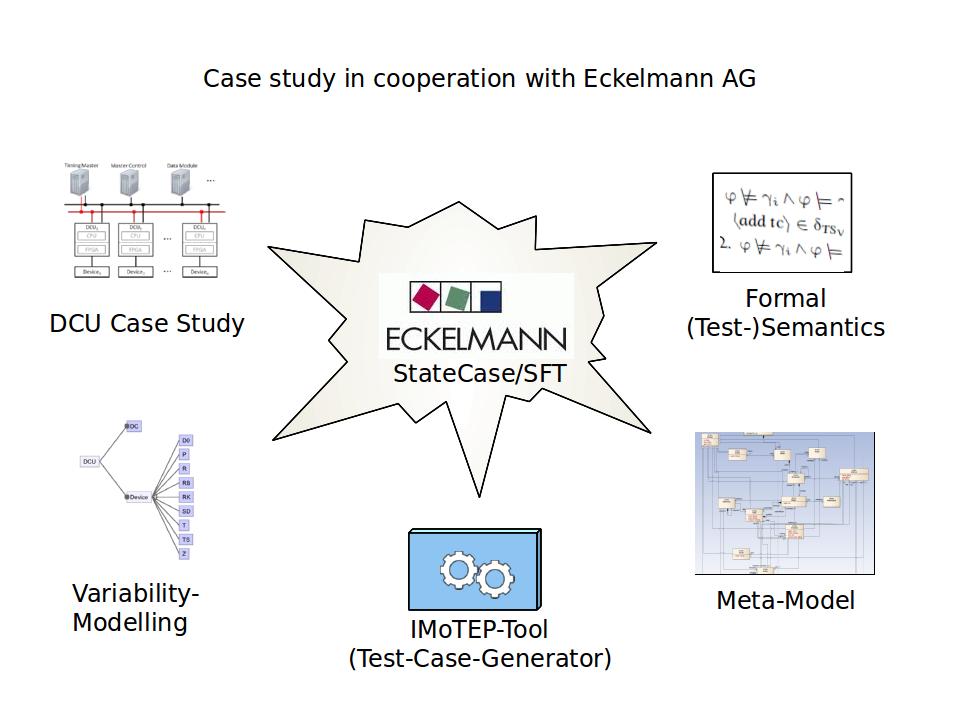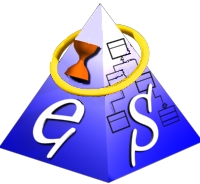Integrated Model-based Testing of Continuously Evolving Software Product Lines (IMoTEP)

 Automation engineers are regularly faced with the problem to maintain long living safety critical process control software families. A promising paradigm for developing this type of software efficiently is (dynamic) software product line (SPL) engineering; it supports the systematic development of software product families of similar applications. However, existing SPL approaches offer only little support for integrated quality assurance and evolution of software over time. In particular, there exist only few approaches and no concise methodology for testing evolving SPLs and their applications until now. For automation systems, there is a particular need for such a support, since here modifications often have to be conducted under hard safety constraints—sometimes even in a running system.
Automation engineers are regularly faced with the problem to maintain long living safety critical process control software families. A promising paradigm for developing this type of software efficiently is (dynamic) software product line (SPL) engineering; it supports the systematic development of software product families of similar applications. However, existing SPL approaches offer only little support for integrated quality assurance and evolution of software over time. In particular, there exist only few approaches and no concise methodology for testing evolving SPLs and their applications until now. For automation systems, there is a particular need for such a support, since here modifications often have to be conducted under hard safety constraints—sometimes even in a running system.

We hence propose an approach for managed dynamic SPL evolution in the automation engineering domain with a particular focus on efficient model-based testing techniques. SPL test suites needed for (1) systematic offline testing of representative sets of products in their development environments and (2) online testing of reconfigurating products in their runtime environments are generated and incrementally updated using a mixture of model checking, constraint solving, and model transformation techniques. Integrated general purpose feature modeling and domain-specific (test) modeling languages are used together with standard model- and new feature model/interaction-based coverage criteria for that purpose. The involved models and their metamodels as well as the associated model processing algorithms are used both at design and runtime. The overall aim is to support both predefined reconfigurations of products and unforeseen evolution of full product lines with a specific focus on the adaptation of their test suites.

MAKI - Multi-Mechanisms Adaptation for the Future Internet
The Collaborative Research Center 1053 of  the German Research Foundation (DFG) with the working title Multi-Mechanisms Adaptation for the Future Internet (MAKI) has been working on harnessing the mobile Internet for future challenges since January 01, 2013. Since Januar 01, 2017, MAKI has been running in its second phase.
the German Research Foundation (DFG) with the working title Multi-Mechanisms Adaptation for the Future Internet (MAKI) has been working on harnessing the mobile Internet for future challenges since January 01, 2013. Since Januar 01, 2017, MAKI has been running in its second phase.
As many as 12 research departments from TU Darmstadt, RWTH Aachen, Uni Mannheim, and UIUC are collaborating on the project.
The idea behind MAKI
Ever since the introduction of poweful mobile devices in the early 2000s, the mobile Internet has experienced constantly growing popularity: Users stream multimedia content or share custom-made videos and photos in social networks.
Even though service providers continuously enhance their networks, the network capacity may still not suffice under extraordinary circumstances such as flash mobs, demonstrations, or sports events.
The key idea behind MAKI is to alleviate this problem by distributing the network traffic using today's mobile devices's numerous communication technologies (such as WiFi, LTE, Bluetooth) and content distribution strategies (such as client-server or peer-to-peer). A core concept of MAKI is that the transition from one technologie to another should be transparent to the user.
Due to their autonomous nature, mobile device should adapt to the changing network topology without (much) intervention of a centralized controlling instance.
With its expertise in graph transformations and configuration management, the Real-Time Systems Lab mainly contributes in Phase II of MAKI to two sub-projects, A1 and A4.

